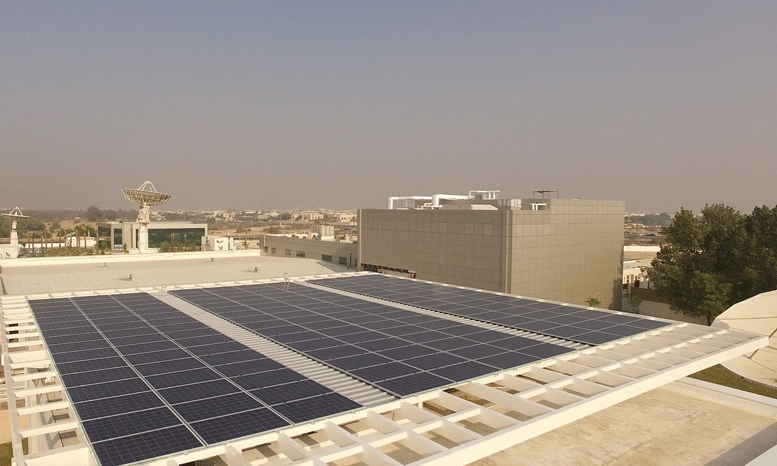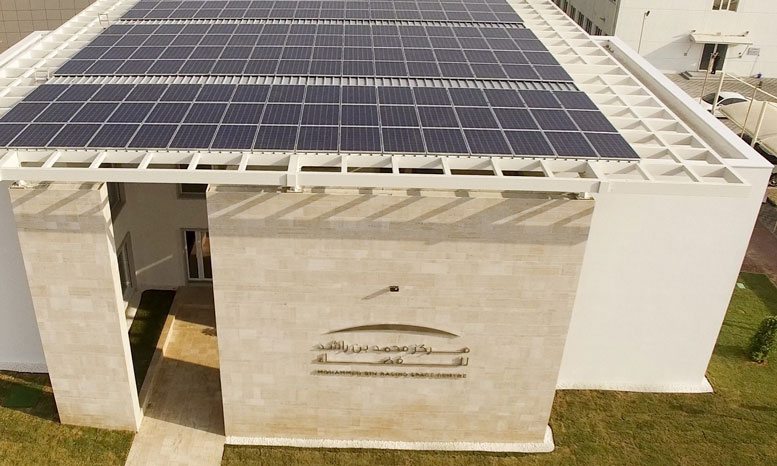The Mohammed bin Rashid Space Centre (MBRSC) on Sunday unveiled the first sustainable autonomous house of its kind in the UAE.
It is now pushing ahead with plans to secure the technical requirements needed for building and developing similar structures, with the aim of implementing the sustainable autonomous house model across the UAE.
Furthermore, the MBRSC said that it was planning to establish a laboratory specialised in conducting experiments and tests for sustainable autonomous houses, so as to be able to verify the efficiency of devices, systems and materials.

The centre said in a press briefing that it was preparing study and research plans to link the project with Dubai’s electricity grid, providing it with surplus energy storage that will allow the house – and future versions – to become small power plants that produce electricity from a natural source – solar energy.
“Since the establishment of the MBRSC, we have been adopting the knowledge transfer strategy in order to develop new technology on UAE soil,” said Yousuf Hamad Al Shaibani, director general of MBRSC.
“To fulfil that goal, we built a strategic partnership with one of the leading academic institutions specialised in developing research studies on efficient houses, such as the University of Bergamo and the Passive House Institute in Germany.
“This significant partnership aims to transfer knowledge of sustainable energy house building techniques. However, we have developed a new concept of this kind of smart home, to fit with the local environment in the UAE.”
The sustainable autonomous house is the first model house developed to be completely self-sufficient and independent of the electricity grid. It produces energy from the sun and depends on smart technical and engineering solutions to adapt to hot and humid climate challenges, the MBRSC statement said.
Certified by the Passive House Institute in Germany, the model is the first of its kind for the environmental climate present in the region.

As the house was designed to meet energy consumption and sustainability criteria, MBRSC said that it aims to showcase the effectiveness of using green and smart techniques to implement the UAE’s strategy for green development and Dubai’s own Clean Energy Strategy.
“The Sustainable Autonomous House initiative is more than just specialised scientific technical research,” said Al Shaibani. “MBRSC is looking forward to constructing an integrated model of an essential component in smart cities, and this is one of future accelerators.
“It’s essential to create the culture of effective and sufficient optimization of renewable energy sources in order to maintain a sustainable environment.
“The global economy tends to invest a great deal into renewable energy projects. This smart home transforms the housing sector from energy consumer to an energy source, thereby reducing the central power production load on the national economy,” he added.
Finally, Al Shaibani called on both government and private entities involved in the real estate sector to invest in this type of smart building.
“MBRSC is ready to provide all support and guidance, as it is developing the current model of sustainable autonomous houses for a hot and humid climate. It is essential to establish the technical infrastructure that is necessary for developers, including a scientific laboratory specialised in conducting tests and experiments to verify the efficiency of devices, systems and materials used.
“We are planning to conduct studies to link the project with Dubai’s electricity grid, providing it with surplus energy storage, plus complementary studies to secure water sufficiency in these houses,” he concluded.

